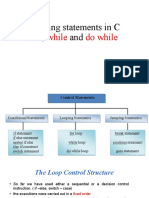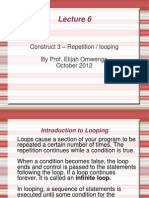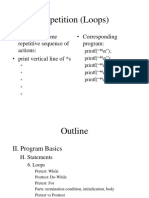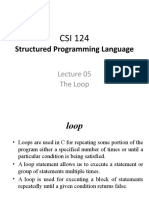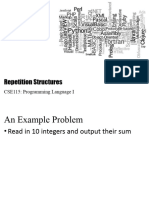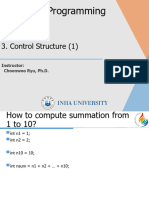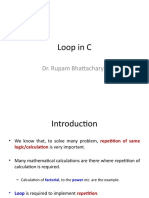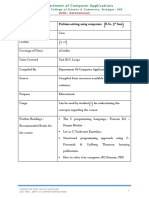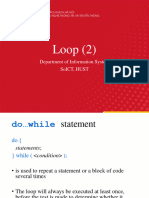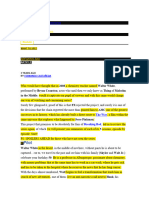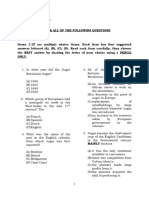0% found this document useful (0 votes)
71 views42 pagesDecision Making and Looping
The document discusses different looping constructs in C programming including while, do-while, and for loops. It provides examples of how to calculate a sum from 1 to 100 using each loop type. Key details covered include the basic structure of each loop with initialization, test, and update expressions, as well as how the loops can be written as equivalent while loops. The document also notes some differences between while and do-while loops regarding when the test condition is evaluated.
Uploaded by
Atish KatkarCopyright
© © All Rights Reserved
We take content rights seriously. If you suspect this is your content, claim it here.
Available Formats
Download as ZIP, PDF, TXT or read online on Scribd
0% found this document useful (0 votes)
71 views42 pagesDecision Making and Looping
The document discusses different looping constructs in C programming including while, do-while, and for loops. It provides examples of how to calculate a sum from 1 to 100 using each loop type. Key details covered include the basic structure of each loop with initialization, test, and update expressions, as well as how the loops can be written as equivalent while loops. The document also notes some differences between while and do-while loops regarding when the test condition is evaluated.
Uploaded by
Atish KatkarCopyright
© © All Rights Reserved
We take content rights seriously. If you suspect this is your content, claim it here.
Available Formats
Download as ZIP, PDF, TXT or read online on Scribd
/ 42

